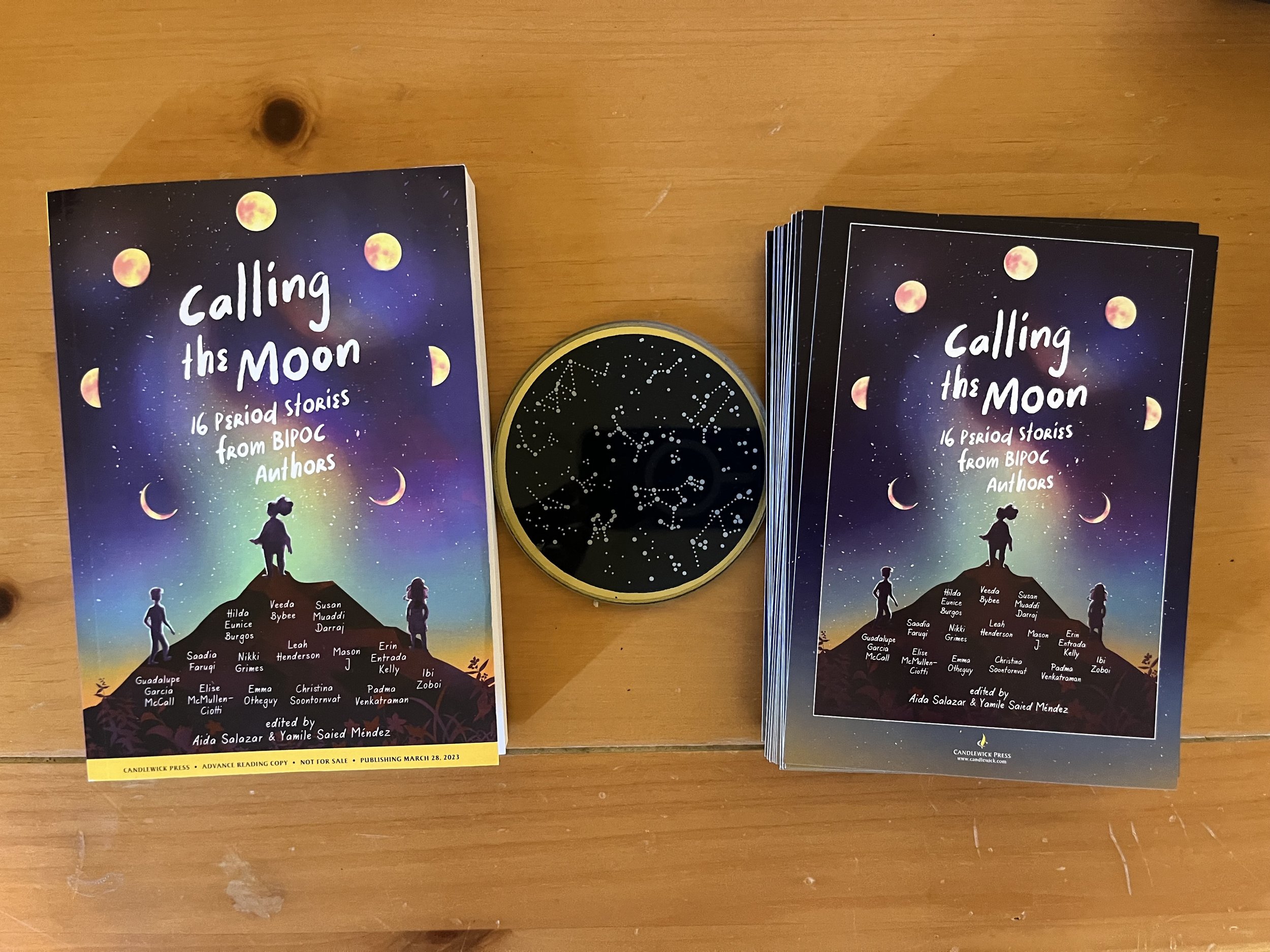Love Letters to Poetry | The Power of Poetry
I think the reason I’m a writer is because I believe that one of the most important types of power we wield is the power of language.
The words we choose to use. I’ve always felt this power, most acutely, in poetry. As a child, I dictated poems to my mother before I could read – and I filled notebook after notebook with my laboriously written poems.
So when a writer I love invited me to join a ground-breaking project she’d undertaken, it’s not too surprising that I wrote about a protagonist who, like me, loved poetry. The project was a collection of stories written by BIPOC writers, centering the topic of menstruation; and the result is an anthology that was released this April: Calling the Moon, edited by Aida Salazar and Yamile Saied Méndez, and published by Candlewick. Aida Salazar’s debut novel-in-verse, The Moon Within, is the first American middle grade novel in verse centering menstruation written by a BIPOC writer; it has been compared to Judy Blume’s classic Are You There God, It’s Me Margaret.
Shakthi Means Strength, my story for Calling The Moon is quite different in tone from the others in the collection.
It is a fierce call to action, inspired by the anger I felt at the way I was treated by my mother and others when I was on my period, and the outrage that I feel at the practice of shunning a menstruating female, which unfortunately continues, even in this country, even today, in my South Asian Indian community. And when it poured out onto the page, it became my first short-story in verse.
I hope you’ll enjoy listening to the clip below, and reading the entire story of Shakthi, the main character, who is shunned when she is on her period; and turns this around by empowering herself through poetry. This isn’t easy, because writing and performing poetry takes courage.
When Shakthi confesses her fear to her teacher, Mrs. Williams responds: “I’d be a bit scared, too, if I were you. / But I’d be proud. Truly proud. / Poets are the first people / Fascists send to prison. / You know why? / Because / POEMS / HAVE / POWER!“
I hope you’ll enjoy listening to the clip below, in which I read aloud from the story of how Shakthi discovers strength through poetry. And I hope you’ll make time to read not just this story, but also the stories, including the two other short-stories in verse that appear in this collection: The Arrival by Nikki Grimes and Shiloh: The Gender Creamsicle by Mason J.
Perhaps these stories will inspire you to create a story of your own, about menstruation, or another aspect of puberty and growth. And/or maybe Mrs. Williams’s words will inspire a research project, to follow the lives of poets who have been jailed or worse, because of the power of their poetry – which, ultimately, is the power of love.

